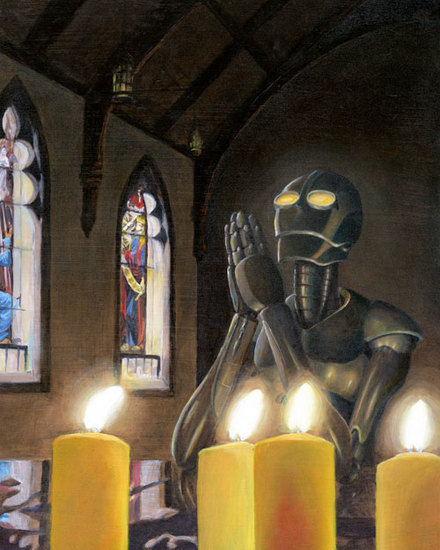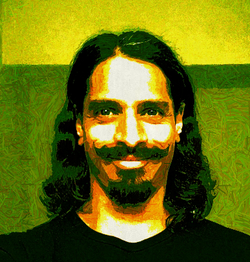This quote is often attributed to St Augustine or Gandhi. It deals with viewing others with compassion and understanding in regards to mistakes in their past.
In Hermann Hesse's Demian, he writes about the Gnostic Greek concept of Abraxas, or supreme power of being that transcends both traditional ideas of God and the devil. In other words, God is infinitely bigger than our minds can comprehend in that He is both ruler of "the light and the dark". Humans were gifted free will to evolve beyond our slavery to animal instinct. In this understanding of "good and evil" the devil acts as an agent in his role of tempter and corrupter to separate the righteous from the ungrateful...
I once had a manager that asked me if I ever noticed how bad luck seems to follow certain people. I was fresh out of college and did not have enough life experience to argue. He maintained that most people make excuses for their failures rather than take responsibility and ownership for their circumstances. He was saying this in reference to shame me for my lack of appointments to sell investment products. This manager was a cut-throat slave driver, who made no apologies for his love of wealth (I hope that he finds what he was looking for). However, later on I too began to notice a similar trend with people falling into one of two categories: actors and reactors (not in the theatrical sense). Actors take responsibility for their circumstances. They seek ways to actively shape their environment so that they are best able to achieve their goals. Reactors tend to react in response to stimuli from their environments and usually have excuses to blame upon their failures. These people fall more into the victim category. In other words, some people make their own luck while other wait for fate.
Many people subscribe to the concept of Manifesting, or the ability to realize one's desires through thinking them into existence. This concept is nothing new, as it has been around in various iterations through out the centuries. It is nothing but positively feeding desirable thoughts into words that become actions that result in reality. I always get a kick out of seeing a person's vision board on a wall with magazine clippings of images that embody the maker's dreams and desires. One of the lessons I took away from my first professional job was the importance of goal setting along with making detailed actionable steps to achieving these ambitions. This helps to condition one's mind into becoming actors in their world by manifesting their own reality instead of being reactors and victims of circumstance. In boxing there is a saying, "If you get hit, it's your own fault." This teaches the fighter to take responsibility for their defenses and not to fall into the temptation to drop their guard when fatigued.
In any case, we're given an abundance of opportunities to make righteous choices that help us to achieve our goals. It's like being on a diet, where each new day presents an opportunity to make healthy choices to build our ideal body. Also like a diet, healthy decisions must be made more often than poor choices in order to move in the desired direction. Temptations must be carefully controlled, but with practice can become easier to manage.
In embracing the actor mindset, I've come to appreciate the proverb: "Iron sharpens iron, as man sharpens man." Tempering in metallurgy is the process of heat treating to increase the toughness of iron-based alloys. The metal is tested in fire under extreme temperature and pressure, which reduces brittleness and refines its molecular structure. The end result is a stronger, more enduring metal.
The metaphor is not lost on this proverb in that we are all tested in this life by the tempter, who is bound in his role to stoke the very fire that weakens or strengthens us. Those that recognize themselves as actors maintain the capacity to choose their fate. Those that view themselves as reactors are like the sinner who continues to sin. Temptation is going to do its job, it's up to us on how we endure.




 RSS Feed
RSS Feed
